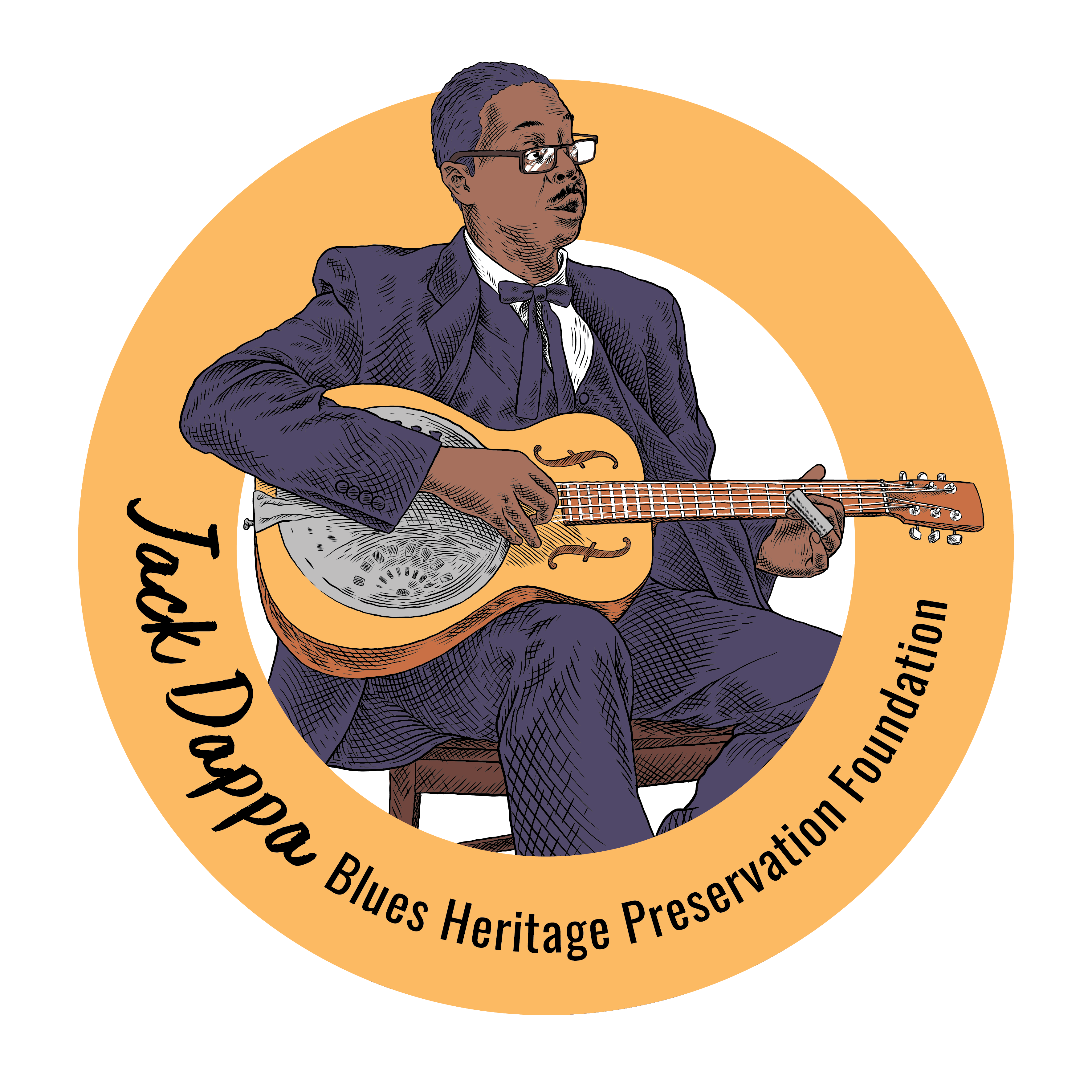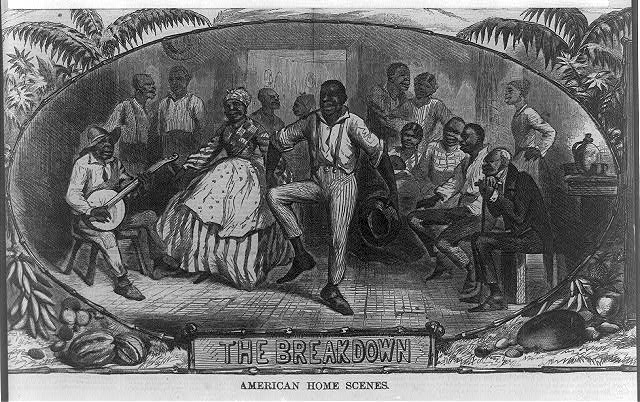Published/Written by
Lamont Jack Pearley
In the late 1980’s throughout the 1990’s I attended several social gatherings from the south to the northeast in which I had no idea, that in fact, I was living a piece of history and tradition shared by my ancestors. This living history and traditional space was once called “Hot Supper”.
Hot Supper’s were a black institution, it was a form of escape, an event for sharecroppers to enjoy themselves away from white people. Black Folk would walk miles to enjoy the beef, fried fish, hash, cornbread and corn whiskey. The meals were cooked in large cast iron pots that were used for laundry and other miscellaneous works. The attendees would sing and dance around the firelight until early Sunday morning as the guitar, fiddle or banjo player plucked away.
Stories told by those who attended, as well as the children or nephew/nieces of those who attended, explain how in some cases, the men would pay women a quarter to dance with them. It was a main event that in most cases took place in the fall, rather than the summer, due to the church revivals. Another reason it was held in the cold weather is because that’s when black farmers had a little money to spend from cotton sales. The event wasn’t necessarily relegated to the weekend, but when it was, it lasted all night.
There were also gambling and debauchery that took place. In the early days of the Hot Supper, the late 1800’s, there was a game called Georgia Skin. Georgia Skin is a card game where each player was dealt cards face down, and the players bet whose number would be matched first as more cards were peeled from the deck. On average, there could be up to 40 participants. As time went on, rolling dice and other card games were added to the extra curricular activities.
Of course, when I attended many years later, they were operating under a different name. In the south they were called “Liquor House’s”, and in some cases, one would include the gatherings in New York called “Rent Parties”.
I’ve definitely attended rent parties throughout the five boroughs thrown by folks like me who have southern backgrounds, and at those parties, it definitely played out like a Hot Supper…in more ways than one. However, since rent parties in NYC is synonymous with the Harlem Renaissance, I’ll focus on the southern, more modern version(at least when I was a younger man it was modern) of the Hot Supper for this part of the piece; The Liquor House. Especially since it is a direct reflection of the Hot Supper. At the time, it was a new concept to me. I experienced these social gatherings in states like North Carolina, Louisiana, Georgia and a few other places along the 85.
I believe I was somewhere between the ages of 18 and 20 when I first walked into a real “Liquor House” with my father and brothers. By this time, we were known for exploitive excursions that for one, wasn’t for the faint of heart, and two, experiences that never seemed to be on anyones bucket or to-do list. These excursions were laughed about years later because of the pure foolishness in some cases, and the entertaining people and happenings we’ve been blessed to witness and make it out alive to tell the story.
Yet, though the Liquor House story has extremely humorous memories attached, what we didn’t know, and what I came to realize is, when we stepped into that elder couples home, introduced to the ‘need to knows’ and made to feel like we were at home, we stepped into a time-machine that took us back to the daily life and survival tactics lived by our ancestors and elder family members. However, the environment and the kinfolk like embrace was nothing knew to any of us. Actually, the fact that there were card games and other gambling going on, fish and grits on the stove in the kitchen, plastic cups of cheap beer and whiskey for sale on a wobbly fold up table, people dancing, music, sketchy dudes selling instant remedies to low energy patrons and some women looking to give a good time at a small price, we all actually felt at home.
I know, it sounds strange coming from a guy who grew up going to church, and at least initially stayed on the straight and narrow. But in all reality, it’s not strange at all…it’s the life of the Blues People. Remember, there was a time that African American socializing and prayer worship took place in the same space. Furthermore, though we have the upper elite Blacks who opposed anything that resembled the antebellum/jim crow south, those same folk were found in these places. Maybe because there weren’t many places for us to go, or more than likely, it was a familiar feel of home.
The elderly couple that owned the house and hosted the nightly social gatherings were fixtures of the community. Deeply rooted in the soil for generations. A tall slender white haired black man who walked with a cane and a bit hunched over, and his smaller statured wife who referred to everyone as “honey’ or ‘chile’. When my father, brothers and I fell upon this place, folklorism, research and the like was far from my mind. I had no idea what a folklorist was, nor did I envision becoming one. I didn’t even foresee myself playing and belting the Blues. I was merely an up and coming rapper, my brother Troy was my DJ, my oldest brother Kaseen was a Brooklyn Ol G and my pops was, like my uncle and their friends, a Brooklyn version of Cooley High. We were literally just some dudes running the streets where ever we were.
Needless to say we had a hell of a time. Luckily no one was hurt or murdered, but the vibe of that taking place at any moment was in the air. Not because of any obvious conflicts, but because it was a gathering of poor people that had nothing to loose, and nothing to hold on to for the exception of love and respect. So it was extremely evident that if either their love or respect was violated, you’d have a big problem. It’s a survival mechanism this particular environment has, and it could be considered an “Alternative Lifestyle” or “Sub-Culture” that abide by different rules of engagement. Hence, it’s not abstract or even unusual for there to be a violent act, or even a murder at one of these functions. Especially if gambling went wrong, or someone, or their woman, was disrespected.
That energy in the Liquor House in the 1990’s was remnant of the late 1800’s giving an a direct connection to the days of reconstruction and some of the patrons who were referred to as “The Bad Man”. “Pud”, and known “Bad Man” ancestor to Willie Bosket, famously known for a slew of robberies and two subway murders in Harlem, frequented these Hot Suppers. He sold corn whiskey that he made, and he also partook in the singing of Slave Seculars.
“I went down to the valley to pray,
I got drunk and stayed all day”
Blues, whiskey, food, gambling, dancing and women also played a roll in disenfranchised, angry drunk men, getting very violent when called out if front of a good looking woman they’re trying to court. There are documentations of killings at Hot Suppers over gambling and women. Someone was owed a quarter, or someone didn’t pay up their dime. Or, some showoff guitar player is flirting with someones date. Considering, the Hot Supper went on until Sunday morning, it’s only natural, I guess, that the brawls and confrontations also carried over to Sunday service. It reminds me of a story I’ve heard about Son House. It’s said that he would drink and play all Saturday night long, until Sunday morning. He’d then climb on top of the bar and begin preaching, after which, he’d climb down, pick up his guitar and began belting the blues again.
The Hot Supper, after a while, began to go by different names. According to Pheobe Thurman, interviewed for for the journal entitled “In Those Days’ African American Life Near Savanah River” by Sharyn Kane and Richard Keeton” “Some folks called ’em hot suppers and some called ‘em plays. Later on, they went to calling them plays, cause they played at night….Coming on down, they wouldn’t say hot suppers. One lady went to a hot supper and said, ‘That was the coldest hot supper I ever had.’”
Some who frequented the Hot Supper remembers the food, some remembers wearing their new shoes and dancing until there were holes in them. Others remember the guitar, banjo and fiddler players.
 Another interviewee of this document names Minnie Walker recounts, “Louella Walker’s daddy….He could play that fiddle!” For Louella, the fiddle represented her childhood and time she spent surrounded by her father’s music. “He learned to play himself….He always said he made his first fiddle out of a sardine box,” she said. “He just made his fiddle out of a sardine box and took his thread and made him a bow.” Louella’s father would play the fiddle accompanied by a guitar player. And the folks would party all night.
Another interviewee of this document names Minnie Walker recounts, “Louella Walker’s daddy….He could play that fiddle!” For Louella, the fiddle represented her childhood and time she spent surrounded by her father’s music. “He learned to play himself….He always said he made his first fiddle out of a sardine box,” she said. “He just made his fiddle out of a sardine box and took his thread and made him a bow.” Louella’s father would play the fiddle accompanied by a guitar player. And the folks would party all night.
The Hot Suppers and Liquor Houses of the world are experiences and traditions that are part of what makes the Blues People the Blues People. There’s still a “Hush, Hush’ mentality and energy when discussing it or preparing to attend. An excitement of gathering your freshest, cleanest wears. That’s a trait that was passed down based on the foundation of the gathering, to enjoy the freedoms of unwinding and letting loose around those you can trust. Trust in regards to it being a place for Blacks to speak and act out freely without being worried about the white man’s law. To just be Black.
By the early 1900’s there was a loss of excitement for the Hot Suppers and other social activities became more prevalent, like the church sponsored gatherings called the “Box Supper” and by the mid – twentieth century, the social gatherings such as Barbecues and Fish Fries became the thing to do. Mainly because of societal shifts, industry changes and a lot of migration, willing and forced. Non the less, the spirit of the Hot Supper, though it goes by a different name, in the rural south is a piece of our heritage and tradition that still exists.

